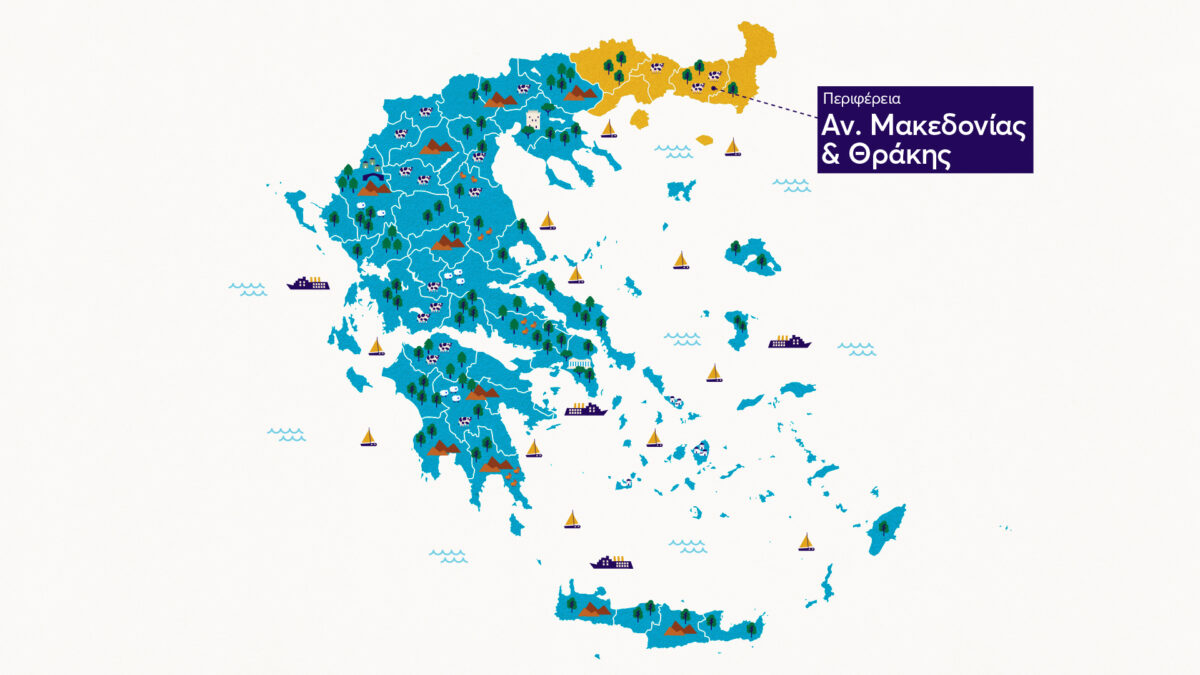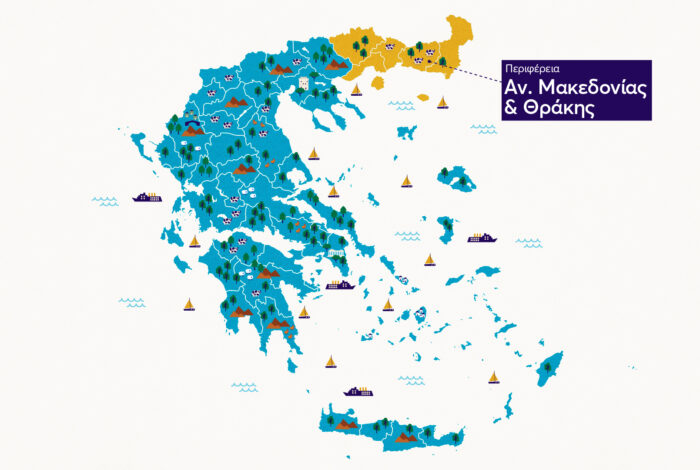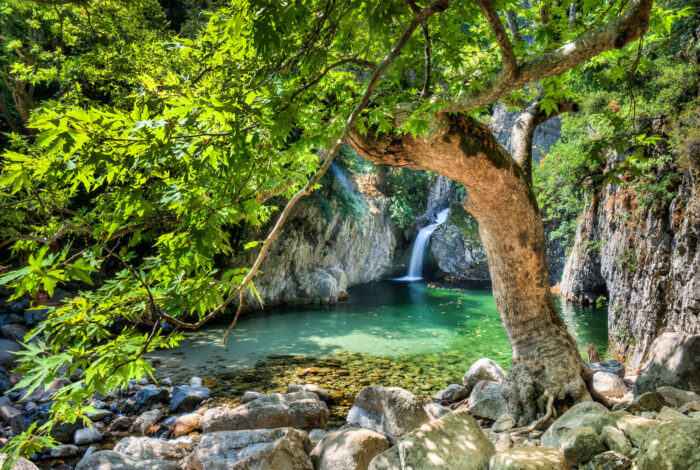The Region of Eastern Macedonia-Thrace is Greece’s gateway to the Balkans and the East. Known since antiquity as a melting pot of peoples, religions, customs and traditions, in the modern day this region exhibits a truly unique type of multi-culturalism that remains unparalleled throughout Greece. Forming one of Greece’s natural borders, the Region of Eastern Macedonia and Thrace encompasses six Regional Units: Drama, Rodopi, Evros, Kavala, Xanthi and Thasos. The local ports of Alexandroupoli and Kavala are of vital strategic and commercial significance.
Straddling Greece’s borders, Eastern Macedonia and Thrace has always provided a welcome home to refugees forced to abandon their homelands and invites travellers on a journey that feels like going back in time, full of images that can’t be found anywhere else in Greece.
The border towns of Orestiada and Didymoticho, Kavala with its urban past, stately Alexandroupoli, multicultural Xanthi and Komotini, and the islands of Thasos and Samothraki together offer a one-of-a-kind wealth of experiences and changes of scenery that remain unmatched.
Cuisine
The farmlands of Eastern Macedonia and Thrace produce sweet fruits, most prominent of which are the local grapes; locals and visitors alike can start their wine-tasting journey from Drama, continuing to Kavala in the shadow of the Pangaion Hills, and ending in Thrace.
Honey from Thasos, potatoes from Nevrokopi, chestnuts from Pangaion, olive oil from Makri, grain and flour from the Thracian farmlands, herbs and aromatics from Evros, kiwi fruit and asparagus from Kavala, and legumes grown in the Nestos River Delta are just a few of the Region’s home-grown treasures visitors can sample.
The local livestock breeding, thanks to its high-quality feed and excellent raw materials, produces some of Greece’s finest cheeses, while the region’s long-standing production of cured meats is based on traditional recipes and excellent raw materials. At the same time, the Thracian Sea is known for its rich marine ecosystems, producing some of the Mediterranean’s finest fish and seafood.
The pluralistic nature of Eastern Macedonia and Thrace is clearly reflected in the local cuisine. Visitors to the region will have the opportunity to sample a truly diverse array of local delicacies, such as kavurma, pastourma, butter, kefir and ariani from Drama, tahini and trahana, sun-dried mackerel and anchovies wrapped in vine leaves, spicy lachania (veal with greens and spicy red sauce) from Evros and pork with pickled cabbage or tzigerosarmades (lamb’s offal with rice wrapped in lamb’s caul fat), kourabiedes from Nea Karvali, soutzouk loukoum from Komotini and kariokes from Xanthi, to name a few. Each dish brings together time-honoured culinary traditions which reflect the many and varied cultures that have left their mark on the region.









